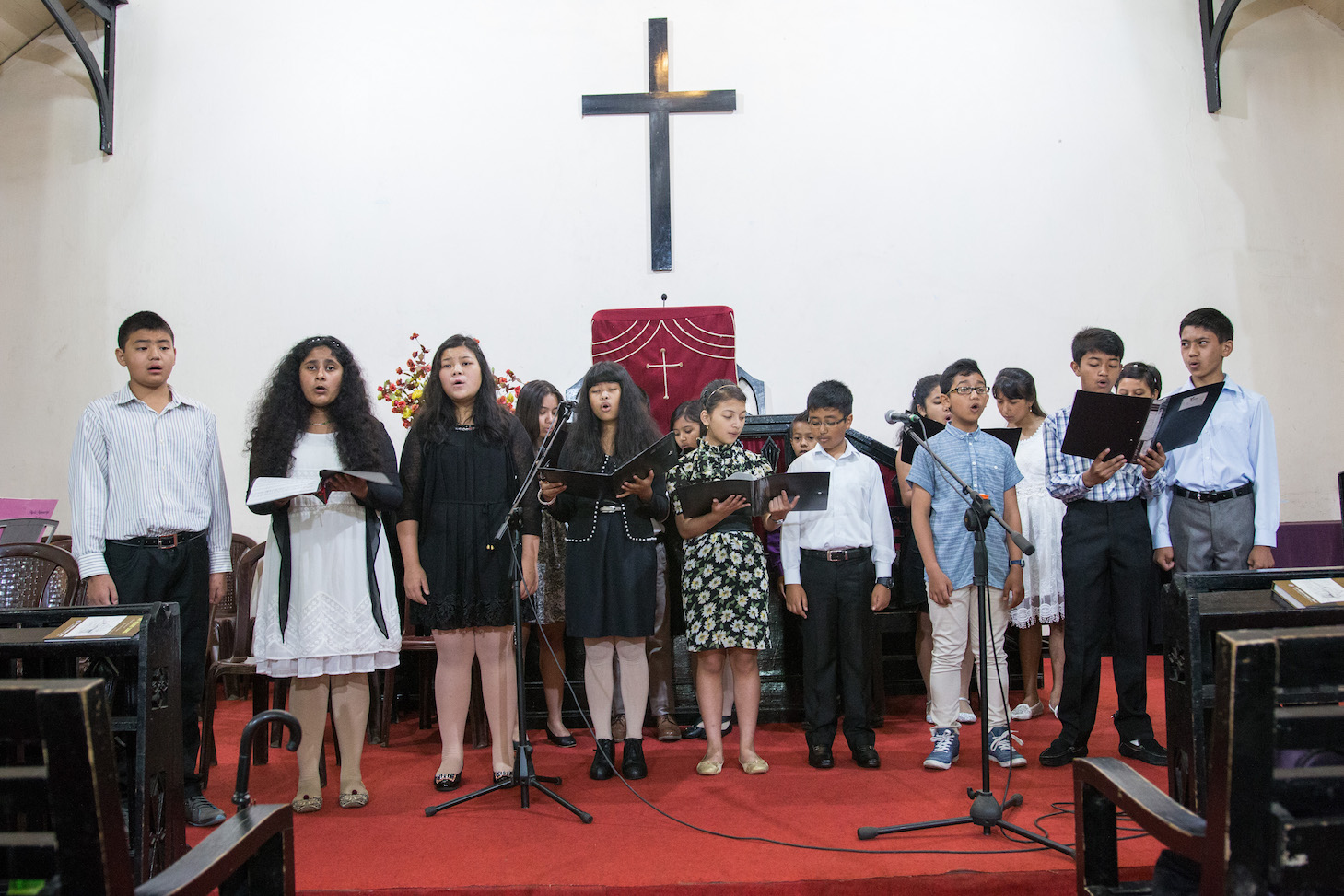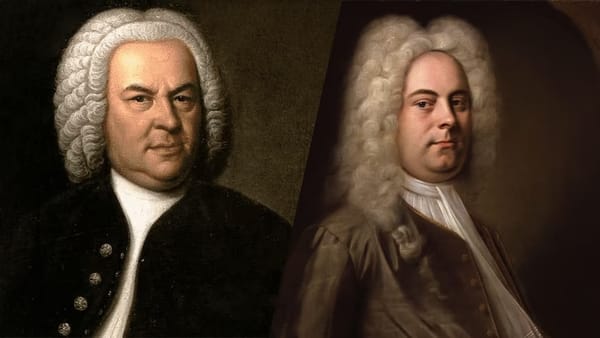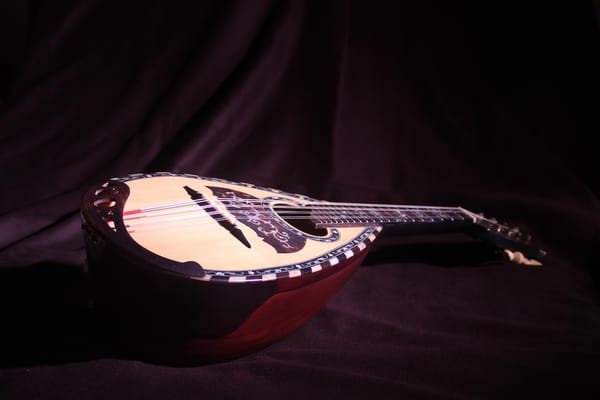About a Little Music School in Pohkseh, Shillong
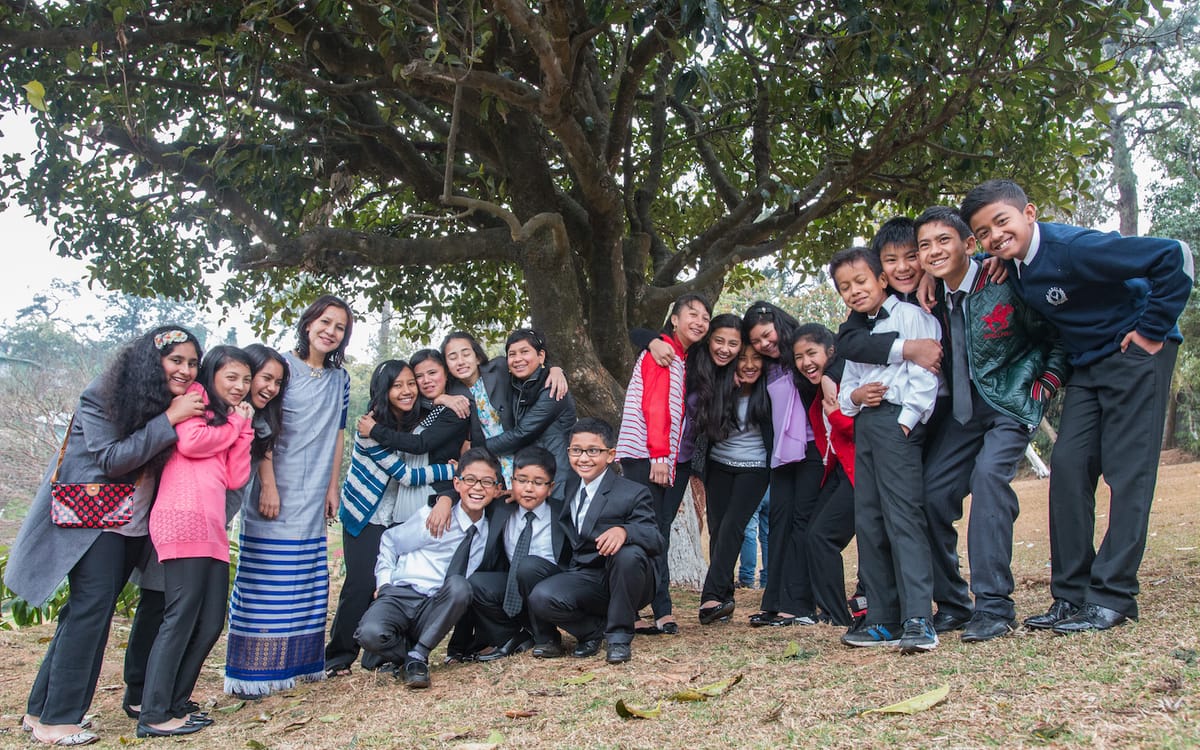
Kong Pauline Warjri is a pianist, singer, songwriter, arranger, composer and music educator, and the conductor-founder of two choirs – Aroha Choir and the Aroha Children’s Choir. From one of my earliest encounters with her, I recall one of the narrations about what made her connect more deeply with her art and her music. This was after she was exposed to the Initiatives of Change Arts Conference in Switzerland in August 2002. It was there that she realized that music is a derivative of a deep source and it fulfils several obligations at different times.
At the Arts Forum in Switzerland, Pauline met artists from various faiths – Bahá’í faith, people from the Muslim community, from the Hindu community, Christians from varied backgrounds, Buddhists and some atheists as well! The Forum was mainly directed at connecting one’s faith through the arts. This programme allowed Pauline Warjri to think through the ways she could engage with art, being a socially responsible musician.
Fondly known as ‘Aunty Pauline’, she has contributed a lot to the growth of classical music in Shillong, Meghalaya. She also helped her brother, Bah Neil Nongkynrih, founder-conductor of the Shillong Chamber Choir, during the initial days, when the Home school was set up by him in 2001. Currently, she is the representative for the London College of Music, North East part of India. She teaches Piano and Voice.
Sebanti Chatterjee: Hello! Please tell me how the Aroha Music School came up?
Pauline Warjri: It started in the year 2007. I used to live in the South of India. I wanted to follow my passion really, in spreading music education. I used to give advice to young people so that they would come in for lessons. Then gradually, there were too many, and I started training my senior students and provide them guidance in the process of teacher-training. In the course of this activity, I discovered that music plays a special role in the transmission of other skills!
For Music to be effective in one’s life, it has to be studied systematically. Teachers are taught so that they learn to plan lessons, appropriate for one’s age and ability. However, at the heart of the project is child psychology. The idea is to motivate children at whatever level they are at. I let my student-teachers figure out their own pace and methods of conducting music lessons. It is afterall an exchange of Ideas.
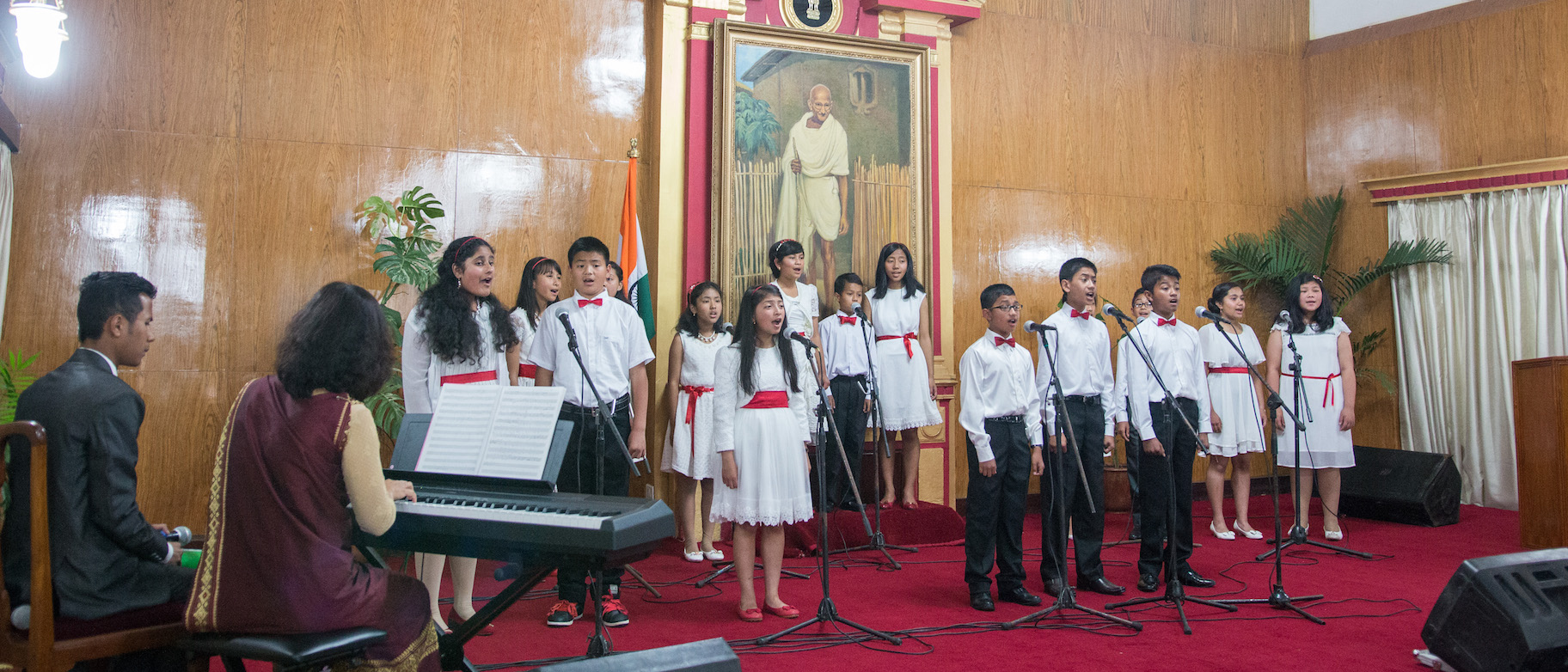
SC: That is quite true. So when you say ‘own methods’, how does it work really?
PW: I had to develop methods that were unique to each situation with the underlying principle that a concept must be mastered before the student could go on to the next level. I realised that each student had their own ways of learning. All are not prodigies but each one can discover one’s own potential. Some become good performers, others good connoisseurs and few more turn out to be excellent teachers. One of my student teachers, Daphne, had an autistic student, who suffers from Aspergers Syndrome. With the help of the child’s mother she discovered ways of teaching the child, allowing him to read and enjoy music at his own pace. He even took an exam recently and did very well.
Let me tell you about Daphne. She herself had some problems as a child. She had fainting spells and had to be taken to the South of India to a special hospital in Vellore for treatment every year. The long and the short of it was that her dedication to the learning of music helped her through her application to studies and she eventually finished her teacher’s training with a distinction. She now runs a successful teaching studio in her own home and is always oversubscribed.
SC: That is remarkable! I have even sat through few of her classes for my own research project. So is Trinity College, the only examination system that is offered at the Aroha Music School?
PW: Well, children can decide on the board of their choice – Trinity, LCM or the Associated Board of the Royal Schools of Music. All three Boards are approved by the British Government.
SC: Tell me, how are these music boards helpful in the realm of music education in India?
PW: They are very helpful as a point of reference for us in India. The examination boards have been at it for more than 100 years, I think. I would of course add here that it cannot be the end-all and be-all of music education. There has to be some sort of inputs from the teachers, based on their imaginations and creativity.
Here, let me add a few lines about the LCM. It was started by Andrew Lloyd Weber’s father, William Lloyd Weber, who was a professor at the Royal College of Music, apart from being a musician. LCM is constantly looking for ideas and are open to suggestions. I find their approach to be quite down to earth. The board encourages personal interaction and has a friendly side to it. They offer examination in the areas of Pop Singing, Music Theatre, Classical Singing and Jazz Piano. There is also registered guitar tutoring available for Acoustic and Electric guitar. I put special emphasis on Jazz Piano because ABRSM does not allow students outside the UK to take the exams, since they require specially trained musicians. I learnt all this when I attended one of the ABRSM workshops in England.
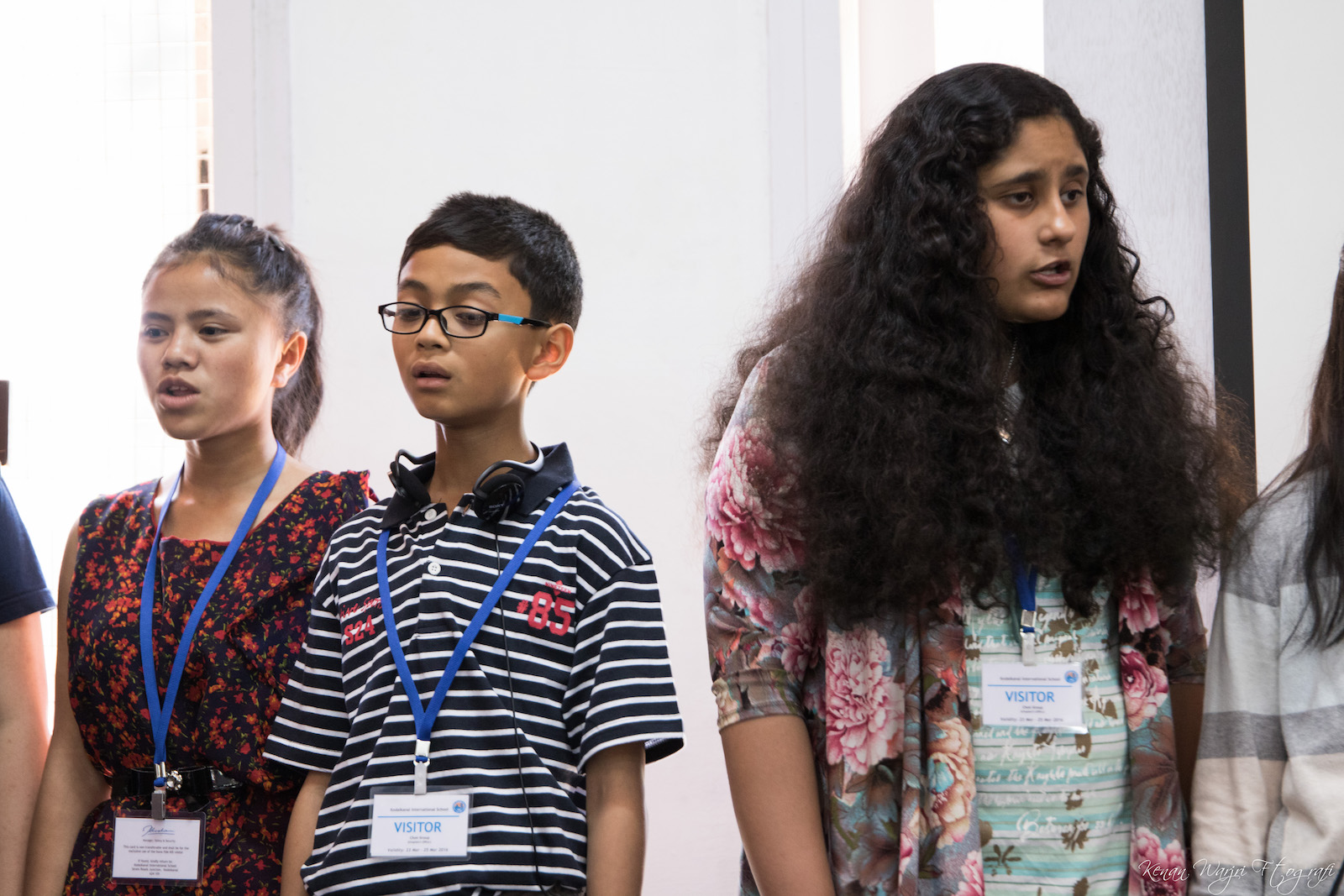
SC: Tell me about your principles of teaching. Also, what about those elementary teaching aids that you were developing?
PW: I have come up with vocal sight reading books. There are 7 so far, written for Classes KG to Class 6, that are meant to teach children how to read music notation in their singing classes. This has never been done at a classroom level in this country and I hope that the project takes off. They are bare skeletals actually, and the exercises are purely my own. There has been a lot of support from the school that I studied and taught in. And a few other schools that know about my work in music education. As for my little Music School, my student teachers have their own individual set up now. They only come to me for advice. It is more like the philosophy of teaching is set free and it should be able to float. So, Daphne has her own set up. So does Rima Me. Infact, now Rima Me is the new LCM representative.
The idea is to work honestly and sincerely with an adequate responsibility. Once these values are at work, everyone is free to pursue their independent methodologies when it comes to music education.
Kids in the choir have learnt time management. They learn quite advanced songs for their age and have a growing repertoire for various genres, styles and languages. We took the Junior Aroha Choir to Kodaikanal and to Bangalore in March 2016. They performed at the International school where I used to teach earlier.
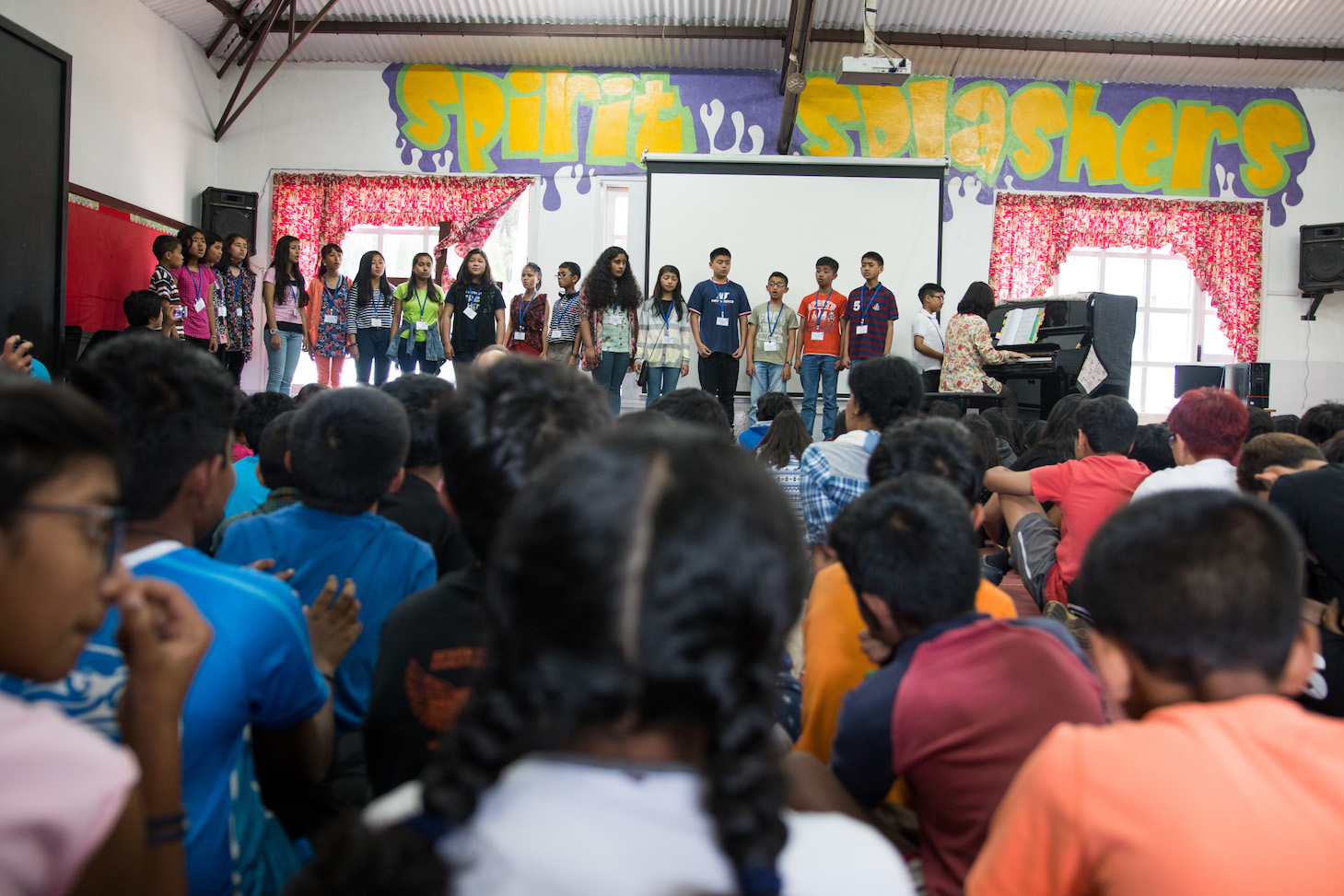
SC: It sounds pretty neat. Of course, the last time I was here, they were still operating from one single school, namely the Aroha Music School. These new individual set ups shall definitely benefit a lot more children. So, tell me a little about the Aroha Junior Choir. What all is happening at the moment?
PW: Okay, so the little children’s choir – few new ones joined and magic began to take place. We performed in Tura recently and in four days, we did four pieces. They even managed to be away from home. Winter Holidays allowed them some extra time. Later, they asked me “Miss, can we stay longer after lunch?”!
To tell you the truth, it’s a difficult process, their voices break and we have to train the new ones. There are few on the waiting list currently. You must remember that one voice can change the sound, the harmony! Sometimes, my senior choir members come and help me out, although they are on a sabbatical. A few days back, Antara sang the song Para Khulla Nala Nad in Carnatic style for one of the programmes. Of course, in terms of repertoire, we do a little bit of pop, classical, oratario, Jazz, Hindi, Tamil, Broadway songs, depending on the shows that we have. It sure is going well as of now, and it’s time that the world hears their voices! They are getting better each day.
